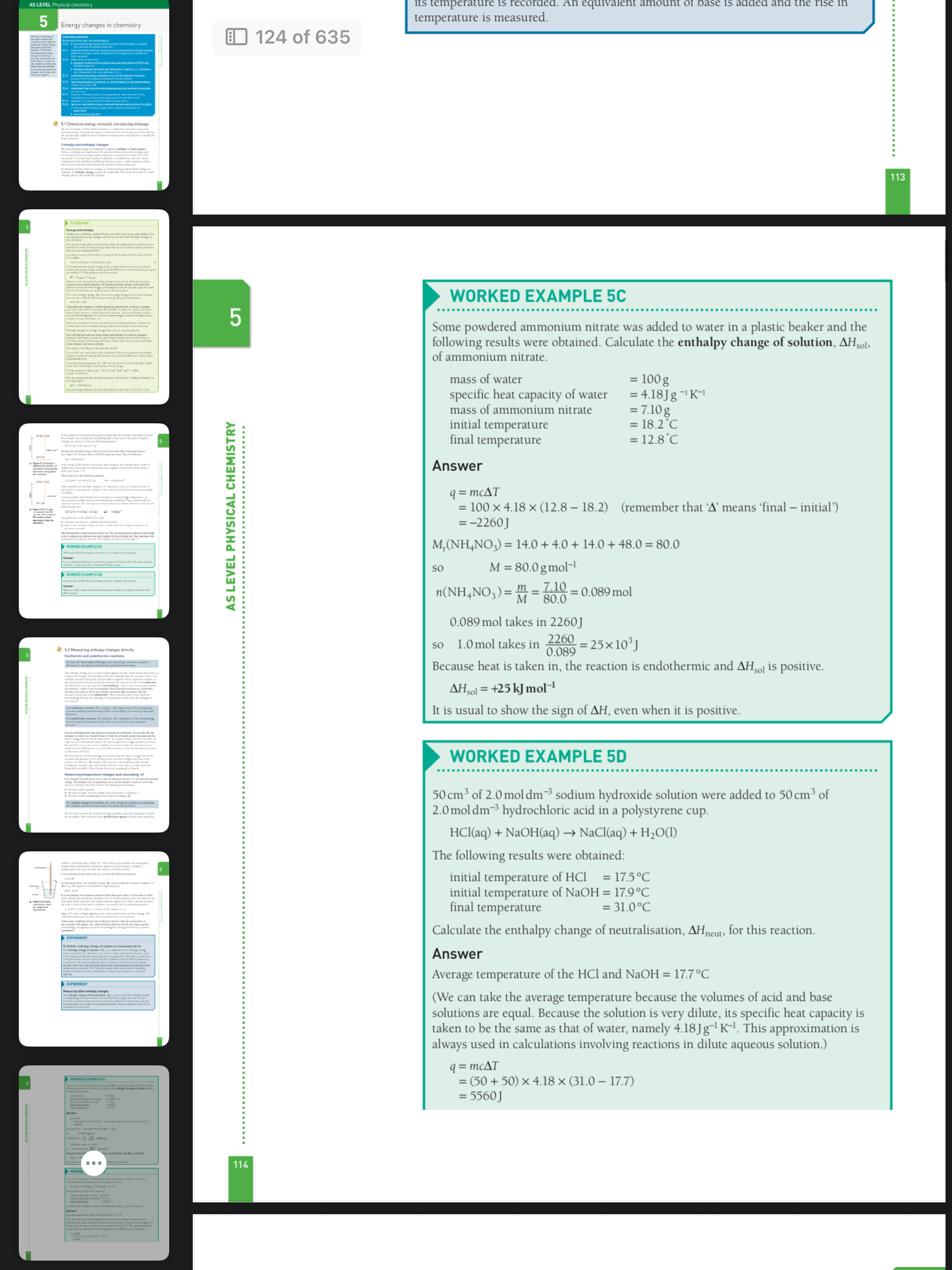AS LEVEL Physical chemistry - Energy changes in chemistry
1/13
Earn XP
Description and Tags
Flashcards about energy changes in chemistry.
Name | Mastery | Learn | Test | Matching | Spaced | Call with Kai |
|---|
No analytics yet
Send a link to your students to track their progress
14 Terms
Enthalpy (or heat content)
The total chemical energy of a substance.
Enthalpy change (ΔH)
Change in chemical energy during a chemical reaction.
ΔH = ΔU + PΔV
The relationship between enthalpy change (ΔH) and internal energy change (ΔU) at constant pressure (P) and volume change (ΔV).
Exothermic Reaction
A reaction that releases heat, resulting in a negative enthalpy change (ΔH < 0).
Endothermic Reaction
A reaction that absorbs heat, resulting in a positive enthalpy change (ΔH > 0).
Specific Heat Capacity (c)
The amount of energy needed to raise the temperature of a substance by one degree Celsius (or Kelvin); for water, c = 4.18 J g⁻¹ K⁻¹.
q = mcΔT
Equation to calculate heat transfer (q), where m is mass, c is specific heat capacity, and ΔT is the temperature change.
ΔH = -mcΔT
Equation to calculate the enthalpy change (ΔH) of a reaction based on heat transfer (q).
Calorimeter
An apparatus used for measuring heat changes in a reaction or process.
Enthalpy change of solution (ΔHsol)
The enthalpy change when one mole of a substance is dissolved in water.
Enthalpy change of neutralization (ΔHneut)
The enthalpy change accompanying the neutralization of an acid by a base to give one mole of water.
Law of Conservation of Energy
Energy cannot be created or destroyed; it can only be converted into another form of energy.
Standard Conditions
298K and 101 kPa
